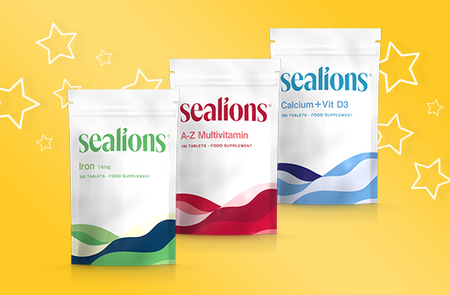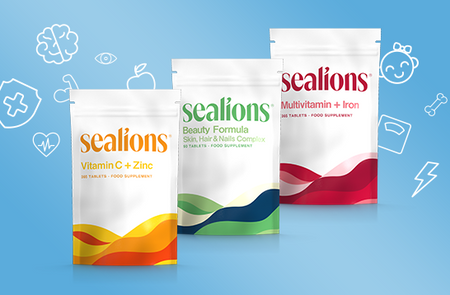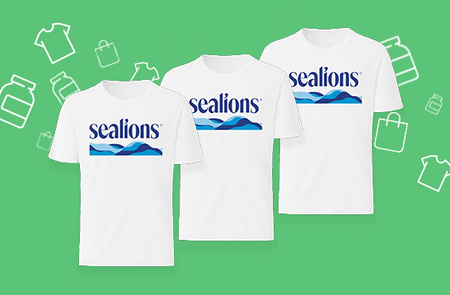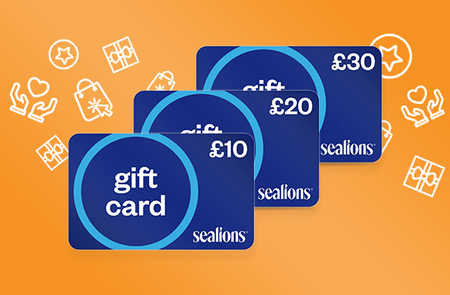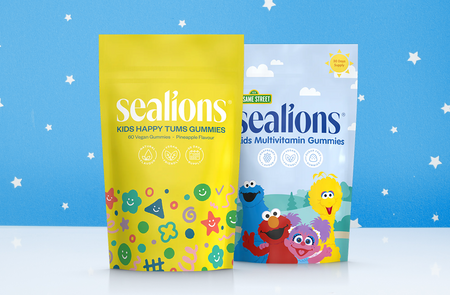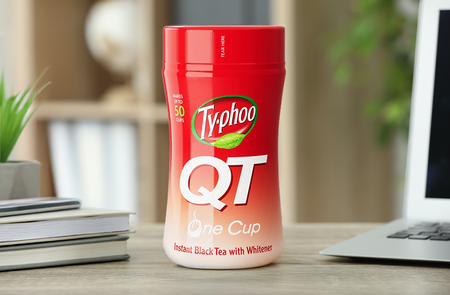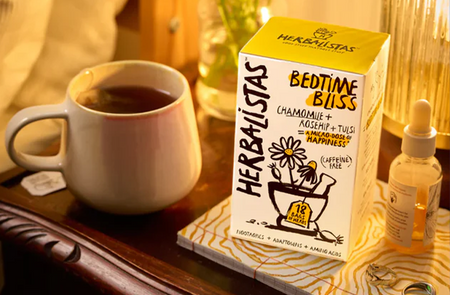
A Beginner’s Guide to Vitamins and Supplements
When you first take a look through our online store, you’d be forgiven for thinking where on earth do I start!?
Our vast range of vitamin and mineral supplements can be pretty daunting for a first time supplement buyer. If you don’t know your Vitamin C from your Vitamin D3 – and why would you – it’s all just a bit confusing.
Well, we don’t think it should be confusing. We think that adding a daily dose of goodness to your life should be as simple as clicking a button. So if you’re confused about the options out there, we’re here to help.
In this post, we’ll explain everything you need to know as a beginner. What the supplements are, why people take them (and whether you should be taking them) and what the most widely taken vitamins are. And then we’ll give you some recommendations to start looking after your health and wellbeing.
If you know the basics, you can skip through to the sections you’re not clear on. But if you’re an absolute beginner don’t worry. This post will tell you everything you need to know.
Shall we begin?
What Are Vitamin Supplements?
On the face of it, this is a pretty simple question to answer.
They’re something you take to supplement (add to) the vitamins and minerals in your diet.
OK, self-explanatory. But that assumes we all know what vitamins and minerals are, and why we need them. And that’s not something everyone knows automatically.
So here’s a quick explanation.
Vitamins are organic compounds that your body uses to help it work properly. You usually get them from food – such as Vitamin C which is found in citrus fruits – but also take in some from your environment. Like Vitamin D, which you absorb from sunlight.
Minerals are similar. They’re compounds that your body uses, but they aren’t only organic. Take iron. Yes, your body uses iron to make blood, and that iron comes from places like red meat and spinach, but that’s the same metal that you’ll find in a piece of iron. Although iron in spinach is something your stomach can work with, which can’t be said for some nice wrought iron railings.
Supplements take these vitamins and minerals from food products and add them to a simple, digestible tablet or softgel. Taking vitamins and supplements should never replace a healthy balanced diet and active lifestyle, however, supplements are handy for when you need that extra nutrient boost.
Why Do We Take Vitamin Supplements?
Sometimes your body needs vitamins and minerals to function at peak efficiency, and sometimes it needs them to work at all.
Here’s a horrible story from history.
Back in the days when it took months to sail around the world, sailors would live on a diet of twice-baked bread, dried meat, and alcohol. That’s a high calorie diet that’d help give sailors energy, it had plenty of protein to keep them full and strong, and it had enough rum to stop them complaining about having dry beef and hard biscuits for dinner yet again.
But what it didn’t have was Vitamin C. So sailors were getting scurvy. Their teeth were falling out, they were becoming seriously ill, and they were dying. All for the lack of vitamins in their diet.
Now eventually the people in charge realised that sailors’ meals needed to be supplemented with vitamins. This took the form of citrus fruits like lemon and lime, and in the form of fermented cabbage – sauerkraut – which may have fixed the scurvy but probably did nothing for the smell.
Almost overnight, cases of scurvy started to disappear. Thanks to people getting the right vitamins. And this was repeated time and time again in history. Doctors learned that more iron in the diet helped with anaemia. That people above the Arctic Circle where it was dark half of the year were healthier if they had a diet rich in Vitamin D3. That expectant mothers were happier and healthier with a little folic acid prescribed to them.
We learned that supplementing our normal diet with vitamins and minerals made us feel better and helped us resist diseases.
We can now fly anywhere in the world in a day or two, but that lesson still holds true. Sometimes, because of your diet, or perhaps some health challenges, you need to add some more vitamins and minerals to your diet.
Do We Need to Take Vitamin Supplements?
Now lots of supplement companies will tell you that you 100% need to spend £25 a bottle on expensive multivitamins to be in any way healthy.
We’re not going to do that. For two reasons.
First of all, we don’t think vitamin supplements should be £25 a pop.
Secondly, we know that you don’t need to supplement your diet if you’re getting everything you need from that diet.
So here’s the truth. If you have a perfectly balanced diet with enough vitamins and minerals from natural sources, and you have no health conditions that mean you need a little extra of one vitamin or another, and you’re not pregnant or trying to conceive, then you don’t need to take vitamins.
Unfortunately, in the real world, we don’t all have a perfect diet and a healthy life.
We don’t all manage to fit in a freshly squeezed glass of fruit juice, a wilted spinach and egg white omelette, and an iron-rich, low fat lean beef sausage into the half hour between getting up and jumping on the bus to work.
And for those of us, those who are missing out on a few essential vitamins and minerals from our diet, supplements are a good way of making sure that our bodies have everything they need to keep us healthy.
Some people follow diets that leave them low on iodine (for example vegans). For people with certain health conditions, a potassium or iron supplement is recommended by our doctors. And for women trying to conceive – or who are pregnant – folic acid supplements are practically compulsory.
So to answer the question, it’s possible that you don’t need to take supplements.
But given the challenges of modern life, we understand that you’d like to make sure you’re getting enough vitamins with a daily supplement. And that you don’t want to pay £25 a bottle.
Interested in learning more? Curious about what vitamins are the most popular? Click through to our other blog post below:
What Are the Most Popular Vitamin Supplements?
The most popular vitamin supplement in the UK is Vitamin D, followed closely by Vitamin C.
33% of people take a Vitamin D supplement according to market research, and over one in four of us also pop a Vitamin C pill in the morning.
That’s because we know that these vitamins are sometimes tricky to get from our usual diets. Especially Vitamin D.
As we mentioned above, while we get some Vitamin D from our food (in oily fish and liver), most of it is absorbed from sunlight. Which poses a problem to anyone who works nights, or who spends all day in an office – especially in winter when the sun can rise and fall between our commutes to and from work.
Faced with the choice of sardines and liver for breakfast, or a little Vitamin D supplement in the wintertime, it’s easy to see why so many people reach for the bottle and not the tin opener!
Other popular supplements include multivitamins, which many people use as an insurance policy in case they know today might include more convenience foods than leafy greens, and folic acid, which the NHS advises pregnant woman to take.
But altogether, well over half of Britons took a vitamin supplement last year, and that number is set to rise as we become more focused on our health and wellbeing.
What do Different Vitamins Help With?
Your body uses different vitamins and minerals in different ways, so yes, different supplements will help you in different ways.
As a rough guide, where is what each vitamin does:
Vitamin A: Helps your immune system, vision and skin
B Vitamins (and Folic Acid): Helps your digestion, your nervous system, your skin and protects unborn children
Vitamin C: Maintains your organs, helps you heal wounds, and supports your cells
Vitamin D: Keeps bones, teeth and muscles healthy
Vitamin E: Helps your skin, eyes and immune system
Vitamin K: Helps your body heal
Calcium: Helps your heart, builds bones and teeth
Iodine: Maintains your thyroid
Iron: Maintains your blood
Others: Chromium, potassium, magnesium and others all help your body in various ways
As you can probably guess, there’s a lot to discuss here. In fact, there’s so much to discuss that we decided to cover it in a separate post, which you can find right here:
What are the Best Vitamins and Supplements?
Where Should I Start with Supplements?
If you’re lacking in certain vitamins and minerals, your body will let you know. You might feel tired and lethargic, have trouble with digestion, or be unable to concentrate. Choosing the right supplement is often a matter of listening to these signals.
On our online shop, we organise our supplements to help you decode these signals. If you’re lethargic, we’ll recommend supplements that’ll boost your energy. If you’re worried about overall health, we’ll show you which vitamins support your immune system.
You know your body better than anyone, so you’re the person who should decide where to start.
But if you’re not sure, and you’d like to just increase your overall health by making sure you get enough of a wide range of vitamins and minerals, then the obvious place to start is with a one-a-day multivitamin.
Just remember – if you have a healthy diet, healthy habits, and grab that extra little bit of support that a supplement delivers, you’ll stand the best chance of feeling happier and healthier in everything you do.
Here’s to your good health!
Tagged:

